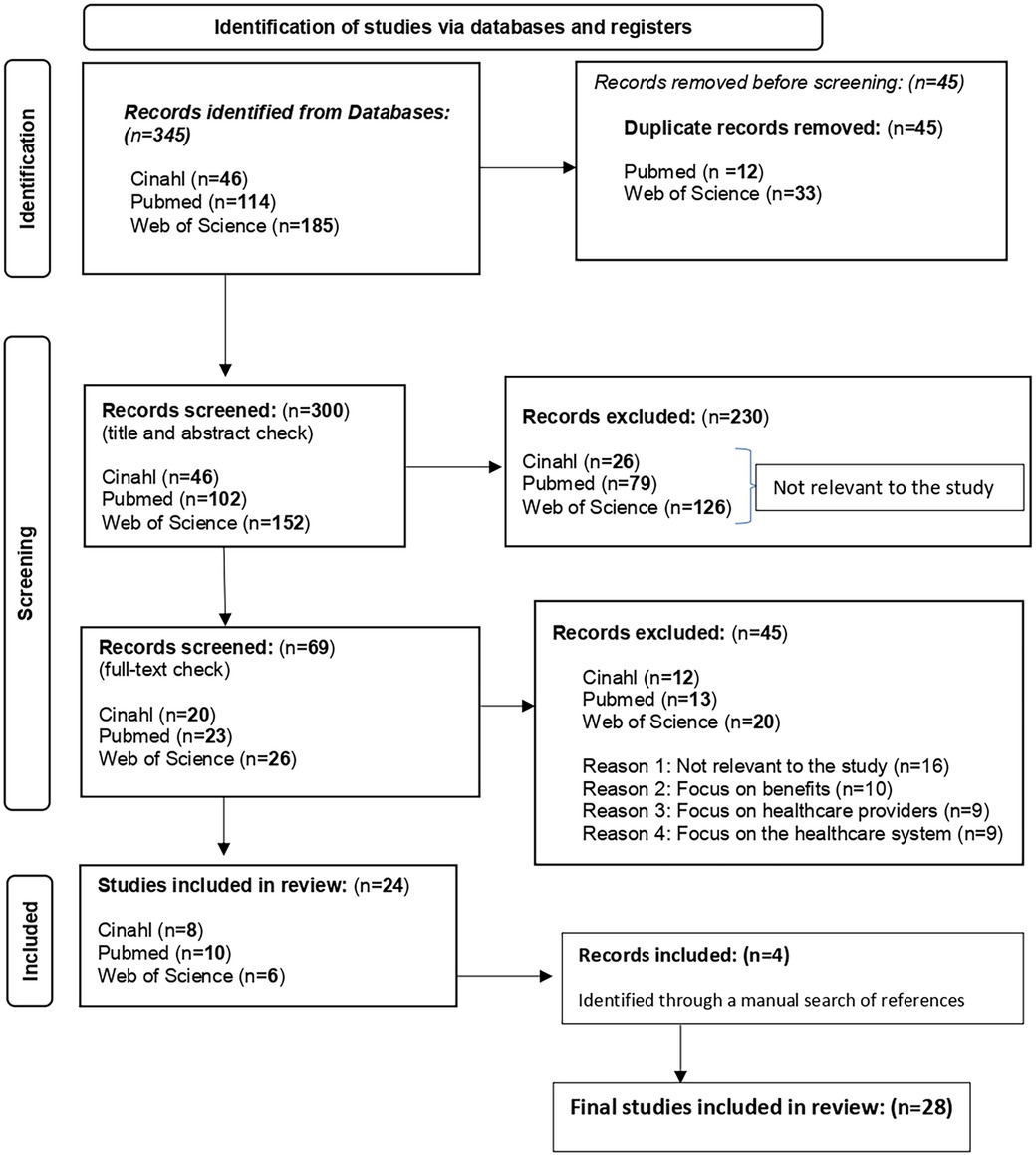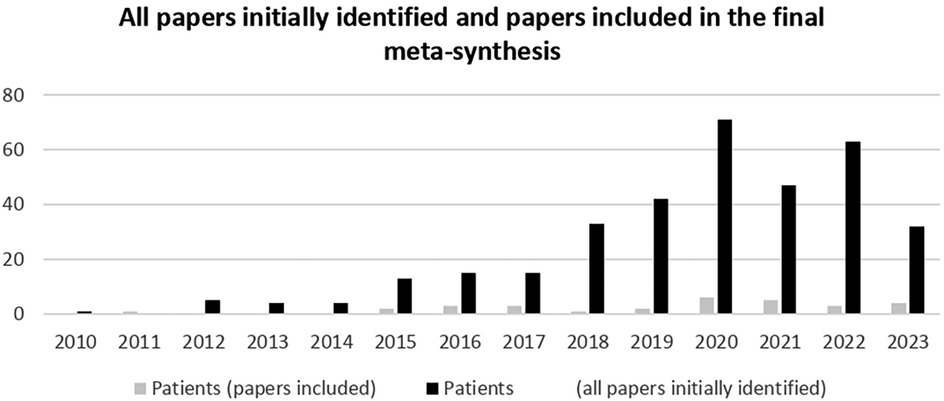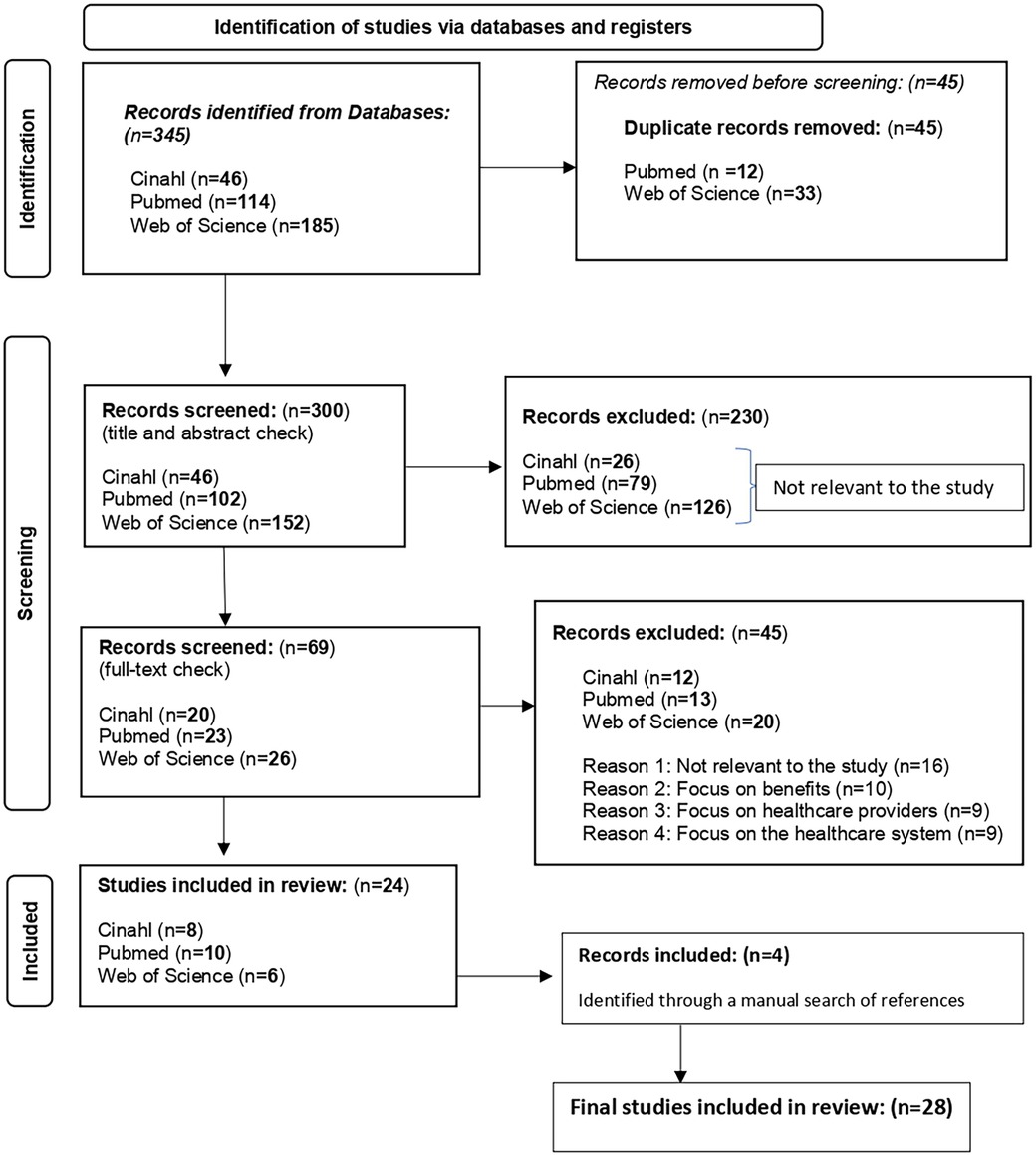Introduction
Digital health technology has revolutionized healthcare delivery by providing personalized care and real-time monitoring. However, there are gaps and challenges associated with its use. This study aimed to identify and map these issues through a systematic review and narrative meta-synthesis.
Methods
Three electronic databases were searched for papers published in English between January 2010 and December 2023. The review followed the PRISMA checklist, and a total of 28 papers were included in the final meta-synthesis.
Results
The meta-synthesis revealed several gaps and challenges related to patients’ use of digital technology, including generational differences in digital propensity, deficiencies in work processes, and ethical issues such as lack of trust in technology and data ownership. A total of 99 findings were reported, with 25 identified as gaps and 74 as challenges.
Discussion
The findings highlight the need for a bioethics model for ethically aligned technology acceptance under the scope of human rights. The three main pillars identified were digital literacy, functionality/usability, and trust. The study emphasizes the importance of addressing these challenges to ensure equitable and effective digital health solutions.
Conclusion
Digital health technology has the potential to enhance patient empowerment and independence. However, it is crucial to consider the identified gaps and challenges, particularly issues related to human rights. A bioethics model is proposed to guide the development of digital health technologies that respect patient rights and promote trustworthy solutions.






